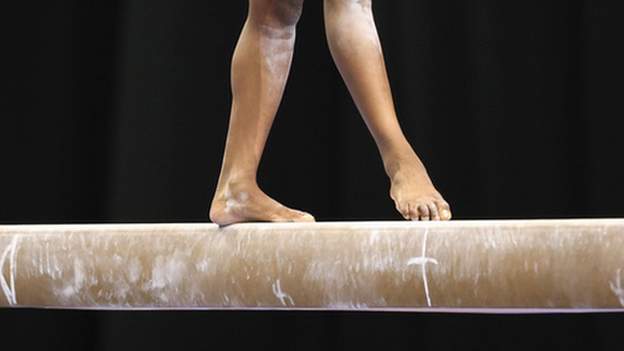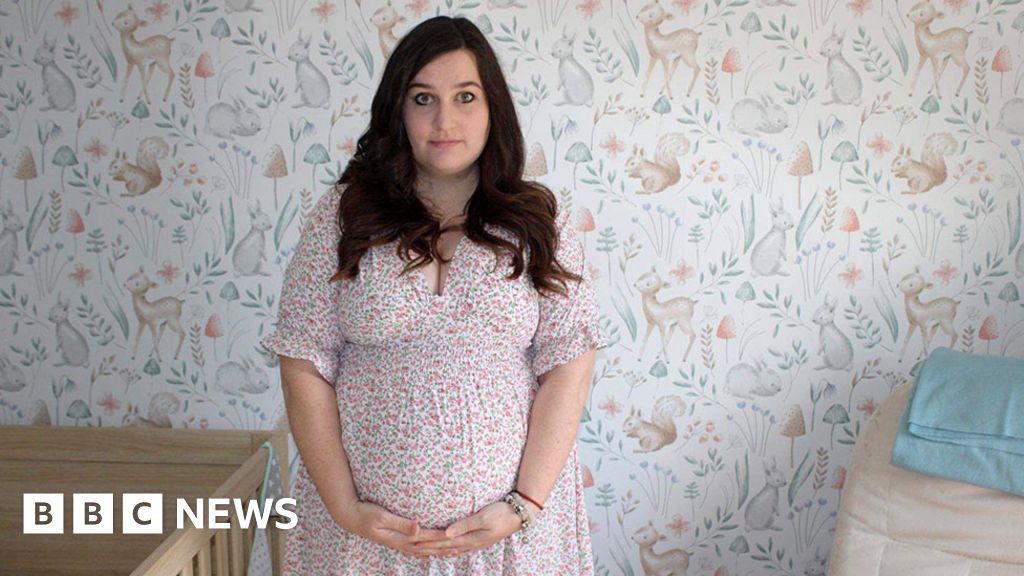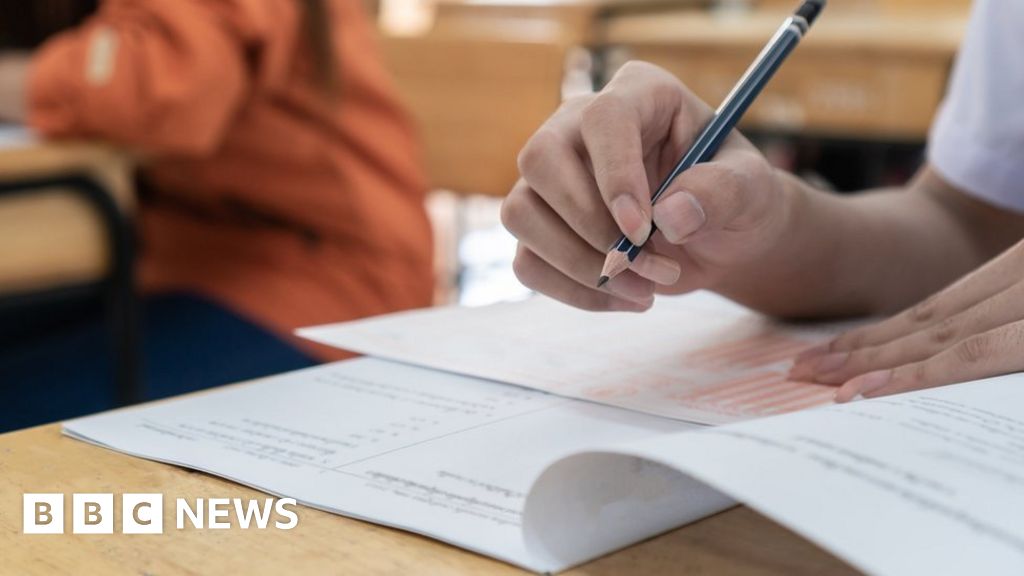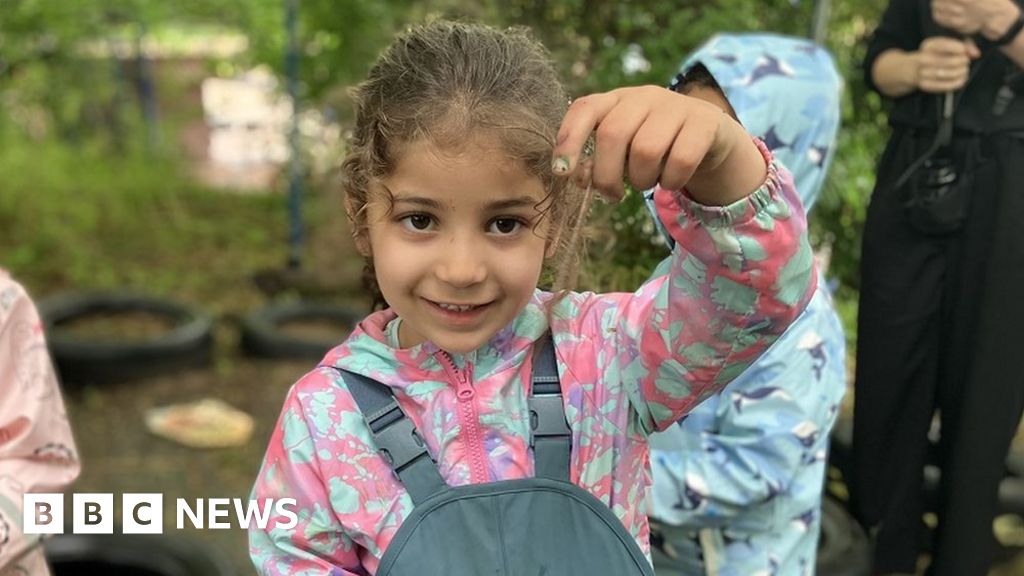[ad_1]
Warning: This article contains some description of graphic injuries and abuse.
A “damning” report detailing mistreatment of gymnasts in Britain shows that “child abuse” of athletes was taking place, says a former gymnast.
The Whyte Review said issues of physical and emotional abuse within gymnastics in Britain were “systemic”.
It heard from athletes who were made to train on broken bones, punished for needing the toilet, sat on by coaches, and subjected to excessive weight management.
During the period of the review (2008-2020), more than 75% of British Gymnastics’ members were children under the age of 12.
“This isn’t tough coaching and slight mistreatment, this is child abuse of athletes at a very young age,” Nicole Pavier told BBC Sport.
“That has a monumental impact on the rest of our lives from a physical and mental perspective.”
The 306-page Whyte Review, led by Anne Whyte QC, and co-commissioned by UK Sport and Sport England at a cost of £3m, received more than 400 submissions of evidence.
Of those, more than 40% described physically abusive behaviour by coaches, more than 50% reported an element of emotional abuse, some 30 submissions included allegations of sexual abuse and more than 25% included reference to excessive weight management.
Pavier was one of the first gymnasts to speak to BBC Sport in 2020 about her experiences in the sport, and said in the two years since it had “put a lot of stress” onto the athletes who went public with their allegations.
“I think it is a good starting point and stepping stone into changing the culture of abuse that is in gymnastics at the minute,” she said.
“And Anne Whyte’s damning report into the sport will hopefully make [British Gymnastics] step up and create some positive changes.
“This is showing that it’s not just a few bad apples, which we had been led to believe, and actually by using our voices we now know that there is a culture of abuse and these are children being abused in clubs and there are a large amount of them.”
‘Institutional betrayal of gymnasts’
London 2012 Olympic gymnast Jennifer McIlveen (nee Pinches) said the Whyte Review laid bare the extent of the “institutional betrayal of gymnasts” in Britain.
McIlveen is part of the Gymnasts For Change campaign group and said the report was “upsetting and shocking to read” but is “not news” to the group.
“It’s definitely very validating to see on paper what we’ve been saying all along and for gymnasts to see experiences that mirror their own – knowing that they’re not alone has been a really important part of the change movement,” she told BBC Sport.
She added she was “encouraged” by the review’s recommendations and by the words of British Gymnastics new chief executive Sarah Powell, calling it a “watershed moment”.
However, Gymnasts For Change said the report’s recommendations – which focus on safeguarding and welfare, complaints handling, standards and educations, and governance and oversight – “fall far short of what is needed”.
In a statement, it said: “Every day without holistic and wholesale change, another gymnast is put at risk and these recommendations fall far short of the change needed.
“We are calling for maximum limits on child athlete training hours and new government legislation on child abuse.”
In 2020, Olympians Becky and Ellie Downie said they had previously been afraid to speak out about their experiences of mistreatment, saying abusive behaviour in gymnastics training became “ingrained” and “completely normalised”.
Writing on Twitter on Thursday, Becky Downie said the Review’s release marked “an important day” for the future of the sport.
“A lot still needs to be worked on but I can confidently say some very big changes have already been implemented,” she said.
Gymnastics’ international federation, the FIG, also said it was satisfied by what it has seen so far in British Gymnastics’ efforts to reform the sport.
It said: “The FIG is convinced that the new management of British Gymnastics has begun to put in place the reforms needed to ensure that athlete welfare comes first in all cases.”
‘Sport can’t keep paying the price’
In addition to her 17 recommendations, Whyte said a sports ombudsman would be “an obvious step in the right direction”.
She said: “One wonders how many sporting scandals it will take before the government of the day appreciates it needs to take more action to protect children who participate in sport, a sector where coaches do not have a central regulator and where most complaints lack independent resolution.”
There have been previous calls for a sports ombudsman, in 2017 Baroness Grey-Thompson recommended the position be created with a view to holding national governing bodies to account for the duty of care they provide.
“I do believe there needs to be an independent body because the cost of this review, the human cost, the financial cost, is not one that that sport can keep paying,” she told BBC Sport on Thursday.
“I see sort of some kind of independent body as the next step in terms of responsible sport. I think it could happen relatively quickly, because how many how many more times does sport have to go through this? It’s just horrible.
“Something needs to be in place and what I would say anyone who runs sport government must think about if this was your child, think about how you would feel if you knew that has happened to someone close to you. And that’s why I think we have to step in.”
If you have been affected by issues raised in this article, there is information and support available on BBC Action Line.
[ad_2]
Source link




